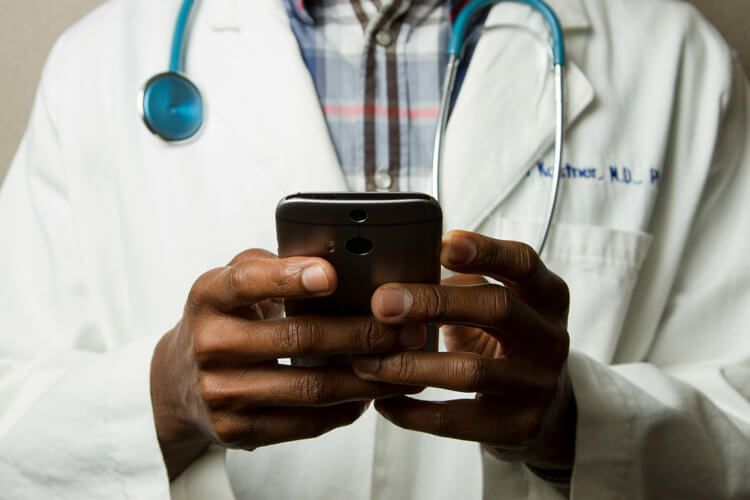
@ShahidNShah


Digital technology has had a massive impact on the Australian healthcare system.
Many service providers are using artificial intelligence (AI) to streamline how they deliver care, while several other digital tools relieve medical professionals of the logistical burden.
Digital health is revamping the way Australians access healthcare, and recent developments suggest the country is at the forefront of innovation.
These breakthroughs prove that digital tools improve care, save time, and support communities. Read on as we explore some of the latest digital health developments making headlines in Australia.
Macquarie University Health in Sydney recently launched an AI-driven content management system that is setting new standards for how automation can make patient care smoother and safer.
The system is designed to make it easier for medical professionals to collect, store, and access information about their patients. Developed with Newgen Software, the new system is an upgrade from the previous one, which often left medical teams drowning in paperwork.
The technology makes things easier by processing and converting handwritten notes, barcoded labels, and PDFs into a secure digital repository.
Medical professionals can easily search and pick out any patient data they need, dramatically reducing administrative work and ensuring data compliance.
Quantum computing is also making headlines in Australia’s health sector. The University of Western Australia (UWA) has received more than A$430,000 under the Critical Technologies Challenge Program to explore how quantum algorithms can enhance medical imaging.
To ensure the success of the groundbreaking research project, the university has partnered with Q-CTRL, Quantinuum LLC, the North Metropolitan Health Service, the National Imaging Facility, and Indigenous innovation not-for-profit First Nations X.
The goal is to use quantum computing to improve the resolution of portable ultrasound devices. These can detect subtle patterns that could easily slip through the cracks with the previous imaging materials, allowing for faster and more accurate diagnoses.
This initiative is backed by Amazon Web Services, and could be applied in other areas outside of healthcare, including environmental monitoring, radar systems and sonar technologies.
Personalised care is becoming a major trend in the Australian healthcare sector, and Peninsula Health is taking it to the next level.
The public health provider serving Frankston and the Mornington Peninsula is using automation and digital tools to make care delivery faster and patient-centred.
One of its standout innovations is a digital pathway that automates cancer detection in endoscopy and biopsy results.
Known as the Post Endoscopy Pathway, the company’s Gastroenterology Unit uses this technology to scan medical reports for keywords indicating possible malignancies. If something malicious is found, the system alerts gastroenterology staff automatically by email.
Although it is not powered by AI, it streamlines a previously stressful manual process and helps medical professionals identify issues as quickly as possible.
Since they introduced the automation technology, Peninsula Health records show that patients with unexpected cancer now receive specialist treatment 43 percent faster.
The digital pathway technology is a game-changer for the entire health sector, but particularly for women with breast or ovarian cancer. With the system in place, they can detect such issues as quickly as possible, which could be life-saving.
Peninsula Health’s digital personalisation approach is complemented by telehealth providers such as Hola Health, which also supports cancer patients. According to this Hola Health review by Medicompare, the platform helps cancer patients access vital healthcare services quickly.
The comparison site helps people find providers that best suit their needs, and Hola Health is one of the most sought-after telehealth providers in Australia.
According to a recent report commissioned by Imprivata, shared-use mobile devices could save Australian hospitals more than A$1 million per year.
The study surveyed IT leaders and clinicians from over 75 acute care facilities. They found that hospitals using shared mobile devices had better coordination and communication between staff, better access to clinical tools, and improved mobility and flexibility.
Shared devices also provided a massive boost to the information technology departments. It helped to boost data security, help hospitals stay compliant, and made it easier to recover lost devices.
On average, medium-to-large hospitals saved about A$1.2 million annually through shared-device strategies. Despite saving Australian hospitals millions of dollars every year, there are a few downsides that are raising concerns.
However, the pros far outweigh the cons. As one Imprivata executive explained, the key is ‘moving beyond ad-hoc solutions to a formal, robust strategy’.

If you’ve ever looked in the mirror and wished your upper arms were more toned, you’re not alone. Many people struggle with loose or sagging skin in the upper arms caused by weight fluctuations, …
Posted Nov 9, 2025 Patient Safety Healthcare Wellness & Prevention
Connecting innovation decision makers to authoritative information, institutions, people and insights.
Medigy accurately delivers healthcare and technology information, news and insight from around the world.
Medigy surfaces the world's best crowdsourced health tech offerings with social interactions and peer reviews.
© 2026 Netspective Foundation, Inc. All Rights Reserved.
Built on Feb 13, 2026 at 12:17pm